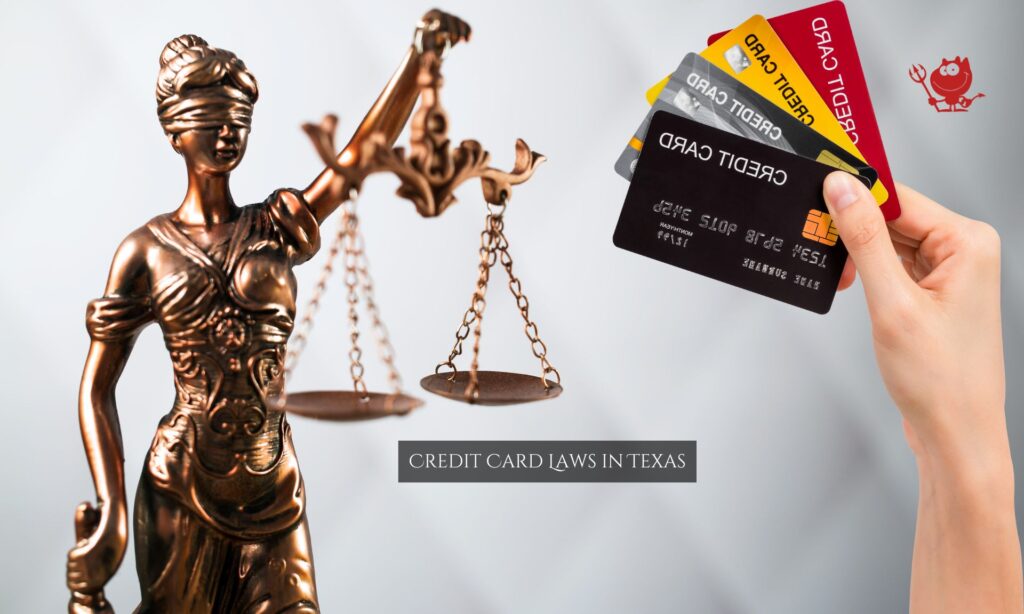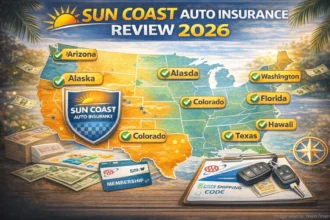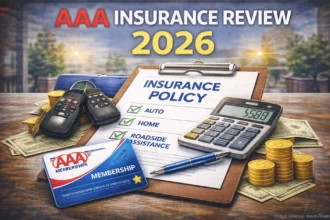Introduction

Credit cards have become an integral part of our daily financial lives, offering convenience and flexibility in making purchases. However, with this convenience comes a complex web of laws and regulations designed to protect consumers and maintain fair practices in the credit industry. For Texas residents, understanding the specific credit card laws that apply in the Lone Star State is crucial for managing personal finances effectively and avoiding potential legal issues.
In this comprehensive guide, we’ll explore the intricate landscape of credit card laws in Texas, covering everything from state-specific regulations to federal protections that impact Texans. Whether you’re a first-time credit card user or a seasoned cardholder, this article will provide valuable insights into your rights and responsibilities under Texas law.
The Texas Credit Card Landscape
Credit Card Usage in Texas
Texas, with its robust economy and diverse population, has a significant number of credit card users. According to recent data from the Federal Reserve Bank of New York, Texans held an average credit card balance of $6,340 in 2023, slightly above the national average. This high usage rate underscores the importance of understanding the laws governing credit cards in the state.
Key Texas Credit Card Laws
Texas Credit Card or Debit Card Abuse Law
One of the most significant state-specific laws concerning credit cards in Texas is the Credit Card or Debit Card Abuse Law, codified in Texas Penal Code Section 32.31. This law addresses various forms of credit card fraud and misuse, including:
- Using a credit card without the cardholder’s consent
- Using an expired, revoked, or canceled card
- Using a fictitious credit card or card number
- Stealing or receiving a stolen credit card with intent to use or sell it
- Buying a credit card from someone other than the issuer
Violations of this law are typically classified as state jail felonies, carrying potential penalties of 180 days to 2 years in state jail and fines up to $10,000. However, if the offense is committed against an elderly individual, it can be elevated to a third-degree felony with more severe penalties.
Texas Debt Collection Act
While not specifically a credit card law, the Texas Debt Collection Act impacts credit card users who fall behind on payments. This act prohibits debt collectors from using unfair, deceptive, or abusive practices when collecting debts, including credit card debts. Some key protections include:
- Prohibiting debt collectors from using threats or harassment
- Requiring debt collectors to provide written notice of the debt within five days of initial contact
- Allowing consumers to dispute the debt and request verification
Credit Card Surcharge Laws
Texas has had a complex history with credit card surcharge laws. Until recently, Texas law prohibited merchants from imposing surcharges on credit card transactions. However, in 2018, a federal court ruled that this ban was unconstitutional. As of 2023, merchants in Texas are generally allowed to impose surcharges on credit card transactions, but they must follow specific rules:
- The surcharge must not exceed the actual cost of processing the credit card transaction
- Merchants must clearly disclose the surcharge before the transaction is completed
- The surcharge must be listed as a separate line item on the receipt
It’s worth noting that while surcharges are now permitted, many merchants choose not to impose them to maintain customer goodwill.
READ ALSO: How to Request a Credit Line Increase with Chase
Federal Laws Affecting Texas Credit Card Users
In addition to state-specific laws, Texas credit card users are protected by several federal laws:
Credit Card Accountability Responsibility and Disclosure (CARD) Act of 2009
This landmark legislation provides numerous protections for credit card users, including:
- Requiring clear disclosure of terms and conditions
- Limiting when card issuers can increase interest rates
- Restricting certain fees and billing practices
- Mandating a 21-day grace period for payments
Fair Credit Reporting Act (FCRA)
The FCRA governs how credit reporting agencies handle consumer information. It gives Texans the right to:
- Access their credit reports for free once a year
- Dispute inaccurate information on their credit reports
- Be notified if information in their credit report is used against them
Electronic Fund Transfer Act (EFTA)
While primarily focused on debit cards and electronic transfers, the EFTA also provides some protections for credit card users, particularly in cases of unauthorized transactions.
Credit Card Fraud Protection in Texas
Texas takes credit card fraud seriously, and both state and federal laws offer protections for consumers. Some key aspects of credit card fraud protection in Texas include:
Zero Liability Policies
Most major credit card issuers offer zero liability policies, which means cardholders are not responsible for unauthorized charges if they report them promptly.
Prompt Reporting Requirements
Under Texas law, cardholders should report lost or stolen cards as soon as possible to limit their liability for unauthorized charges.
Identity Theft Protections
Texas has robust identity theft laws that complement federal protections. The Texas Identity Theft Enforcement and Protection Act allows victims of identity theft to place a security freeze on their credit reports and creates penalties for businesses that fail to protect sensitive personal information.
Consumer Rights and Responsibilities
Understanding your rights and responsibilities as a credit card user in Texas is crucial for maintaining good financial health and avoiding legal issues.
Rights:
- Clear Disclosure: You have the right to receive clear and conspicuous disclosure of all terms and conditions before opening a credit card account.
- Billing Dispute Resolution: If you notice an error on your credit card bill, you have the right to dispute it, and the card issuer must investigate and respond within specific timeframes.
- Fair Debt Collection: You have the right to be treated fairly by debt collectors, including the right to request that they stop contacting you.
- Credit Report Access: You have the right to access your credit report for free once a year from each of the major credit reporting agencies.
Responsibilities:
- Timely Payments: You are responsible for making at least the minimum payment on your credit card balance by the due date.
- Reporting Lost or Stolen Cards: You should promptly report any lost or stolen credit cards to limit your liability for unauthorized charges.
- Reviewing Statements: Regularly review your credit card statements for any unauthorized or incorrect charges.
- Understanding Terms: Take the time to read and understand the terms and conditions of your credit card agreement.
Credit Card Best Practices for Texas Residents
To make the most of your credit cards while staying compliant with Texas laws, consider these best practices:
- Compare Offers: Texas has a competitive credit card market. Take the time to compare offers from different issuers to find the best terms for your needs.
- Read the Fine Print: Always read the terms and conditions carefully before applying for a credit card.
- Monitor Your Credit: Regularly check your credit report for any errors or signs of fraud.
- Use Credit Responsibly: Aim to pay off your balance in full each month to avoid interest charges and maintain a good credit score.
- Be Aware of Surcharges: When making purchases, be aware that some merchants may impose surcharges on credit card transactions.
- Know Your Rights: Familiarize yourself with both Texas and federal credit card laws to ensure you can advocate for yourself if issues arise.
Conclusion
Navigating the world of credit cards in Texas requires a solid understanding of both state and federal laws. From protections against fraud and unfair practices to regulations on surcharges and debt collection, these laws are designed to create a fair and transparent credit environment for Texas consumers.
As a Texas resident, staying informed about your rights and responsibilities as a credit card user is crucial. By understanding the laws that govern credit cards in the Lone Star State, you can make more informed financial decisions, protect yourself from potential abuses, and use credit as a tool to achieve your financial goals.
Remember, credit card laws and regulations can change over time. Stay informed by regularly checking updates from reputable sources such as the Texas Attorney General’s office or the Consumer Financial Protection Bureau. If you encounter issues with your credit card or believe your rights have been violated, don’t hesitate to seek legal advice or file a complaint with the appropriate authorities.
By being an informed and responsible credit card user, you can make the most of the benefits credit cards offer while avoiding potential pitfalls. Here’s to smart and savvy credit card use in the great state of Texas!
For more information on credit card laws in Texas or to report suspected violations, visit the Texas Attorney General’s Consumer Protection Division website or contact a qualified consumer protection attorney in your area.
FAQ Section
Q1: Can credit card companies charge any amount for late fees in Texas?
A1: No, as of May 14, 2024, credit card late fees are capped at $8 for large card issuers thanks to a new rule by the Consumer Financial Protection Bureau (CFPB). However, it’s important to note that a federal judge in Texas has temporarily blocked this new rule, so the situation may change. Always check with your card issuer for the most up-to-date information on fees.
Q2: Is it legal for merchants in Texas to charge extra for credit card payments?
A2: Yes, as of 2023, merchants in Texas are generally allowed to impose surcharges on credit card transactions. However, they must follow specific rules, such as clearly disclosing the surcharge before the transaction and not exceeding the actual cost of processing the credit card payment.
Q3: What should I do if I’m a victim of credit card fraud in Texas?
A3: If you’re a victim of credit card fraud in Texas, take these steps:
- Immediately report the fraud to your credit card issuer.
- File a police report with your local law enforcement agency.
- Place a fraud alert on your credit reports with the major credit bureaus.
- Consider filing a complaint with the Texas Attorney General’s Consumer Protection Division.
Q4: Are there any special credit card protections for elderly Texans?
A4: Yes, Texas law provides enhanced penalties for credit card fraud committed against elderly individuals (65 years or older). Additionally, the Texas Deceptive Trade Practices-Consumer Protection Act offers additional protections for elderly consumers in various financial transactions, including those involving credit cards.
Q5: Can a business in Texas refuse to accept credit cards?
A5: Yes, businesses in Texas have the right to choose which forms of payment they accept. There is no state or federal law requiring businesses to accept credit cards. However, if a business does accept credit cards, they must follow all applicable laws and regulations.
In another related article, 10 Best Credit Cards for New York Residents in 2024





